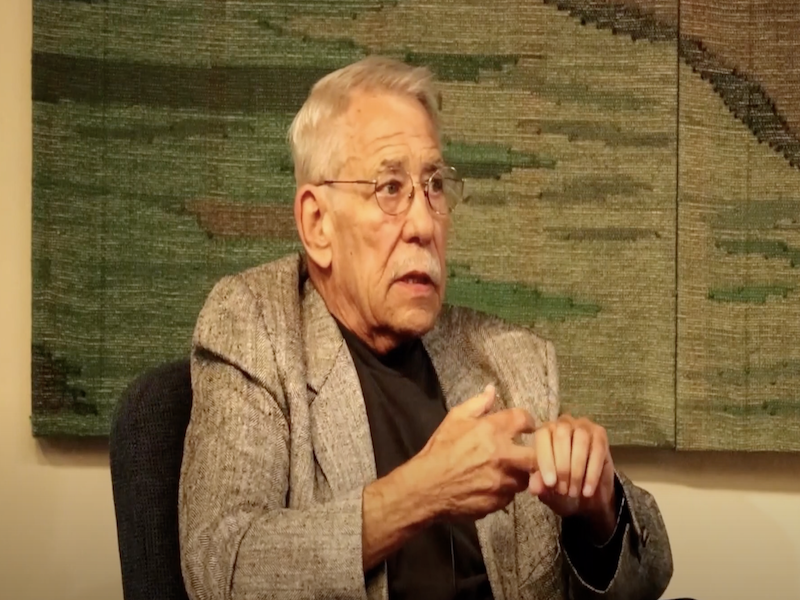Reviews
My book provides a “30,000-foot” view of how the Bible came to be, and does so with the aim of making major biblical characters appear as “real” as your next-door neighbors.
It's is a tool to start discussions on the dangers of biblical literalism – dangers to the spiritual growth of individuals as well as dangers to perceptions, writ large, of the Bible itself.
My book is easily used as a tool for congregational or small group study. It helps build community through honest dialogue about our spiritual questions and experiences.
"[How the Bible became the Bible] provides excellent historical background as well as the author's personal history, which enhances his message by providing a glimpse of how the Holy Scripture can really be used. The book discusses very technical subjects yet makes them understandable to the average reader. It is a useful positive approach and has the ability to provide healing insight among today's dogmatic and divisive approaches to scripture…. I will be promoting your book during my seminars…."
~ Lee Carroll, author of "Indigo Children" and many "Kyron" books
"This book is of much value to the serious student of Holy Scripture. It will enable the reader to view the Holy Scriptures in the context in which the books were written and arranged. It provides excellent historical background and Don's personal reflections effectively enhance his message with a glimpse of how the Holy Scripture has been integrated into his own life. Don has taken some very technical subjects and made them understandable to the average reader. Embracing and understanding message contained in HOW THE BIBLE BECAME THE BIBLE potentially forms a bridge of understanding between various faiths within the three great Abrahamic religions (Judaism, Christianity and Islam) and other religions as well. It can break down barriers that need not exist and shed light on the source texts that bring peace, understanding, enlightenment, and freedom. … I am glad to have a copy of HOW THE BIBLE BECAME THE BIBLE in my library."
~ James J. DeFrancisco, PhD.
Miltha Ministries, Mishawaka, Indiana
"How the Bible became the Bible can put years of Bible study and Scripture reading suddenly into focus. It sharpens the big picture no matter how clear it seemed before…. The research and scholarship are excellent, yet it can be read as easily by those with little biblical knowledge as by those with [Bible study] experience."
~ Karen Harvey, historian, published author
Active member of the Memorial Presbyterian Church, Saint Augustine, FL.
"Thus is such a unique and helpful book! I know many people who will find this 2nd Edition of How the Bible became the Bible to be invaluable: seekers who want to reflect more deeply on the practical application of Jewish and Hebrew sacred texts; religiously-minded people whose questions about the history and use of the Bible have not been answered adequately; and individuals like me who are privileged to work with people who want to deepen their inner lives experientially. I especially appreciate Don O'Dell's ability to draw on the riches of academic scholarship without befuddling interested "lay people," while simultaneously tapping the author's personal experience with sources such as the 12 Steps. A great resource."
~ Robert Field, Episcopal Minister
Founding Director, Center for Spiritual Wisdom
Brevard, North Carolina
"The recent launch of the 2nd Edition of How the Bible Became the Bible is a refreshing synthesis of scholarship and deep personal reflection. Don O’Dell invites us to enter the experience of biblical personalities and groups, and to feel their struggles to find elusive spiritual coherence within their perception of events. He locates these struggles within the historical currents of biblical times. Our spiritual ancestors were not unlike us—doing their best to find a serviceable and authentic relationship with the Great Mystery. What has come down to us as scripture, however, is not only the recorded fruits of this search, but particularly those fruits chosen for their compatibility with historical and political agendas that too often may have had little to do with spiritual Truth.
It is an error, even a danger, O’Dell suggests—he is the first I know of to use the term bibliolatry—to regard these writings as the inerrant word of God. There is a richer, deeper relationship available through these works that gets lost in literal and fundamental interpretations. If your interest is to cultivate the potential for personal transformation through a balanced, enlightened understanding of biblical teachings, among other spiritual disciplines, this should be your next book."
~ Dr. Jim Nourse, Ph.D., psychologist, acupuncturist
Author of Simple Spirituality: Finding Your Own Way, and Opening the Aloha Mind: Healing Self, Healing the World with Ho’oponopono
"The history and mystery of the Bible have been in the literary hands of only a few people compared to the millions who do not know the true meaning of the Bible – including what it really is and what it really is not. Mr. O'Dell has done insightful research to explain simply the pure intent … of this greatly misunderstood book and how it came to be. I highly endorse and recommend O'Dell's exciting new work.."
~ Dr. Tom Costa, Minister Emeritus
Founder, Palm Desert, CA, Church of Religious Science and author of “Life: You Wanna Make Something Of It?”
"Donald O’Dell has woven an interesting tapestry of research, scholarship, and personal experience into this examination of the authenticity of biblical entries. While the references O’Dell uses are reliable and thorough, the beauty of this book is its readability. Many exploratory books that lean heavily on academic biblical research can be so dense it takes a person wholly devoted to the subject—or making their salary from it—to decipher the author’s writing style.
This is almost akin to a book within a book. “How the Bible became the Bible” is more a handbook and a guide than an attempt at adding to the compendium of collected biblical scholarship. And a glance at the Table of Contents makes this very clear, indeed. Divided into two parts, one for the Old and one for the New Testament, there are cumulatively 12 chapters, two pages of bibliography, and three pages each of index and footnotes.
What O’Dell is trying to do is to provide an historical context for the chapters and verses along with some strong doses of common sense about what social and political factors may have contributed to the characters, personalities, and their role in recording these powerfully consequential stories that have shaped Western, if not World history.
One of the author’s most important chapters is Twelve. The author makes five points, which really underpin his sensitivity and add elements of sane discourse to what often is emotionally charged. O’Dell does not really dispute that Jesus lived, so that is one battle that does not get fought is this summary. A person with good sense and an open mind will: 1) focus on the difference between general guidelines for moral living and literal instruction; 2) readers need to recognize and then acknowledge the danger of “bibliolatry” (idealizing and literalizing the Bible); 3) understanding how institutionalization can attract linear and closed-minded thinking; 4) understanding and analyzing how powerful the fear engendered by a god of retribution can be when promoted as that force is in BOTH Testaments; and 5) acknowledging who Jesus was and was not. These principles are what provide the reader with a sense of what the author is really up to; what he is trying to convey about the message of this powerful “Good Book.”
This examination is really an open-minded exploration of whether morality is inextricably tied to biblical tenets that came directly from the font of God. As we gradually learn, issues of morality were well illuminated for many hundreds of years before such principles landed in either Testament. What we do come to understand is that many of the exquisitely complex moral questions of the right and wrong of human action have been seductively intertwined into the Bible so as to create a seemingly authoritative, absolute, and final comment on what ought to and should be."
~ For the New Age Retailer Magazine
Thomas Peter von Bahr, Pacific NorthWest Group, Lopez Island, Washington
"Interpreting the good book is risky business for one local author, Donald L. O’Dell
Folio Weekly, Jacksonville, FL, Northeast Florida’s News and Opinion Magazine
What exactly is the Bible? To some, it’s just a long, boring book that fills motel room nightstand drawers, contains the answers (err….questions) that always screw contestants up on Jeopardy, and that way too many people (especially around here) thump. To others, the book is the literal word of God. But is it really? Author Donald O’Dell says no.
O’Dell is not a Bible-hating Doubting Thomas. He received a Masters in Divinity from Princeton Theological Seminary, was a Presbyterian minister for almost six years and still attends church regularly. In fact, it was his intense spirituality that prompted him to get to the bottom of what the Bible is all about. He attempts to do so in his recent book, “How the Bible became the Bible.”
Simply put, O’Dell believes that interpreting the Bible literally, taking at face value all that it contains, does the Good Book and its authors a great disservice. What must be taken into account, and seldom is, is historical context. Once this is accounted for, according to O’Dell, one can finally sift through the rubble of the ages and extract what they believe is the true and relevant word of God.
In late 2004, at his St. Augustine home, O’Dell and several members of the New Thought congregation, held a focus group. Here, O’Dell explained, he was considering conducting a spiritual, historical, and sociological study into what the Bible means.
“Quite a few people said, “That would be very helpful to us,” says O’Dell. “Other folks in other religions said that it would be helpful as well, because they just wanted to understand. With that kind of encouragement, I realized that what I had started doing just for myself might really be helpful, and the manuscript evolved from there.”
Exactly one year later, in December 2005, he mailed the manuscript to a publisher.
At the heart of O’Dell’s book is a desire to reveal the “honest spirituality” contained in the Bible, rather that the religiosity that’s used as a tool by so many literalists. He explains that since early in human history, spirituality and religiosity have been at odds, and at the root of this confrontation are fear and a desire to know that one’s actions are right. By interpreting the Bible literally – taking it as though God said directly, “This is right and good, this is wrong and evil,” – people attempt to overcome their doubts and fears. Unfortunately, this inclination leads them in the opposite direction. “These are the same fear-based ‘religious’ forces that dominate the beliefs of today’s fundamental and evangelical churches, leading them to misuse the Bible.”
O’Dell takes his reader from the days when the Old Testament was written through the time of Jesus, offering a historical and sociopolitical perspective along the way. Ultimately, O’Dell hopes that this closer, more logical look at the Bible helps the “average person in the pew” achieve a fuller spiritual life by helping them access those aspects that can complement their personal belief system. He hopes that eventually people will be able to say, “This is the path I have chosen in order to know and experience God, as I understand God,” rather than the fundamentalist’s insistence that “This is the only path to God.”
O’Dell makes a point to stress, though, that he didn’t write the book to convert anyone to his way of thinking. As he puts it, “I tried to be as honest as I could be, and so I designed [my] Website to give enough information where if someone does believe the Bible literally, sees my title, and gets excited, the website will explain enough that I’m not coming from that perspective. So, if that’s going to offend [you], don’t buy the book.”
"
~ Robert Field, Episcopal Minister
Founding Director, Center for Spiritual Wisdom
Brevard, North Carolina
"Many devout Christians know their Bible chapter and verse, but know little about how that Good News was cobbled together in the first place.
The Bible didn’t just pop out of Heaven fully formed, like a loaf of bread. Men, inspired by God, picked and chose various texts to create it. Donald L. O’Dell of St. Augustine has just issued “How the Bible became the Bible.” His book explains the story of the Bible in a historic as well as a spiritual context.
It is well worth the read.
The years following Jesus’ execution are a particularly fuzzy time in history. O’Dell explains the formation of various Jesus cults that formed and how they merged their new doctrine with more traditional Jewish ethics. But soon these groups found themselves at odds with the church, which established sets of rules that strictly codified behavior.
He explains the writers of the first books of the Bible, the Israelites and the patriarchs.
At the end of the book is a timeline and an appendix with the collected words of Jesus.
O’Dell doesn’t take a dogmatic view about anything. He often says, “Depending on your point of view…” before launching into an analysis. His voice is that of a gentle, friendly teacher, exploring all aspects of the Bible, providing interesting asides and giving a clear view of the political forces operating at the time.
It also offers a peek into O’Dell’s psyche as well. He’s a former Presbyterian minister and holds a master’s graduate degree from the Princeton Theological Seminary and an undergraduate degree in history.
Most books on the Bible focus on theology. But O’Dell focuses on its origin – the writers, the events, what to include and what to reject.
No one will be offended by this book except perhaps those who strictly believe that every word of the Bible is the exact, unerring word of God. Even those readers, however, will learn something.
Few books like this exist for the general reader. Even non-Christians can enjoy it, because – other than its religious importance – the Bible is an important cultural and historical touch-stone. No one is truly educated without knowing the Bible.
“How the Bible…” has been chosen by Unity Institute for all its Bible courses. E.J. Niles of the Unity Institute said the book provides “a sane, high-level discussion of the development, history and understanding of the Bible for us today, in what is becoming a growing climate of extremism, misinformation and divisiveness.”
~ "Peter Guinta peter.guinta at staugustinerecord.com



